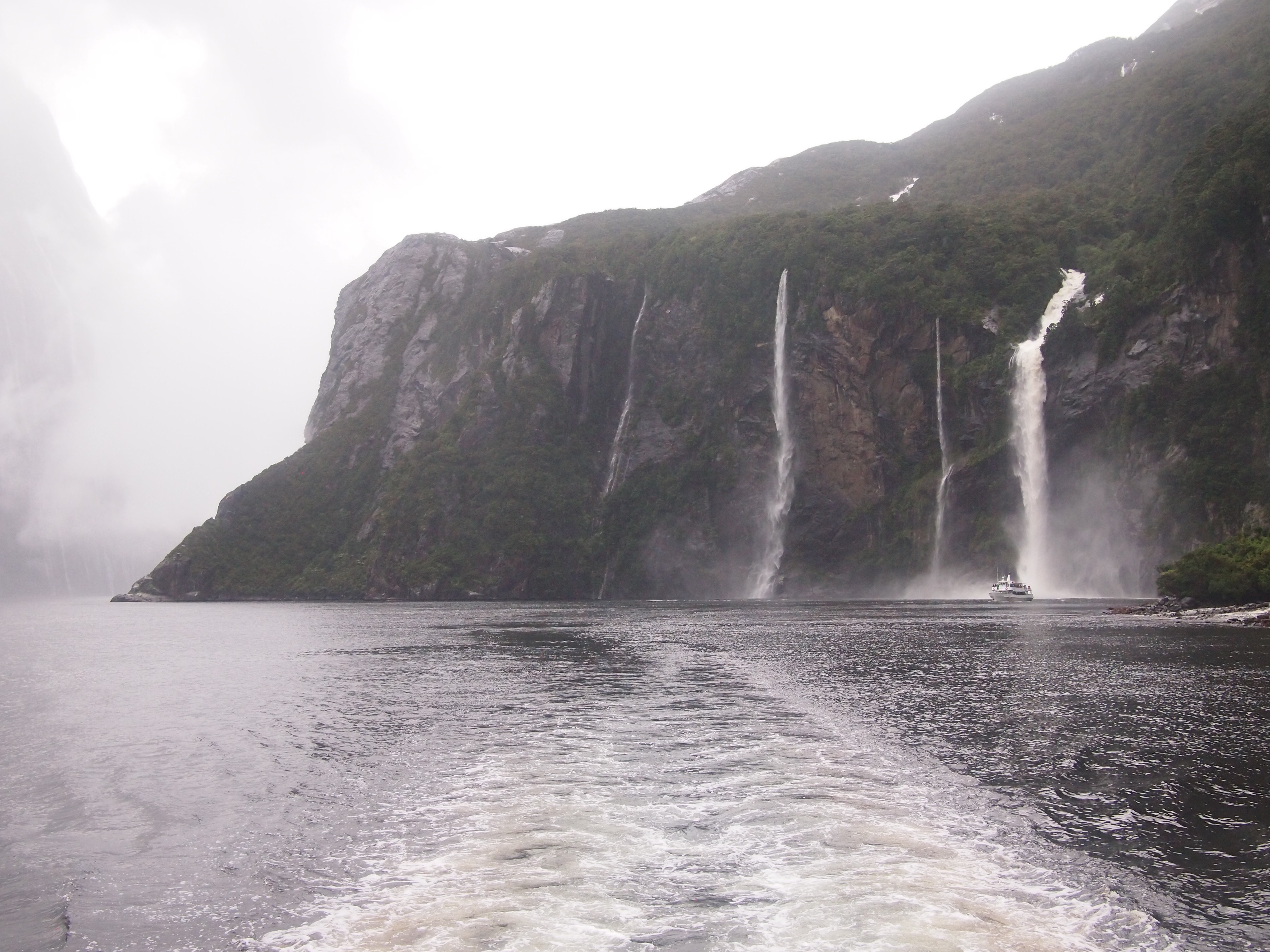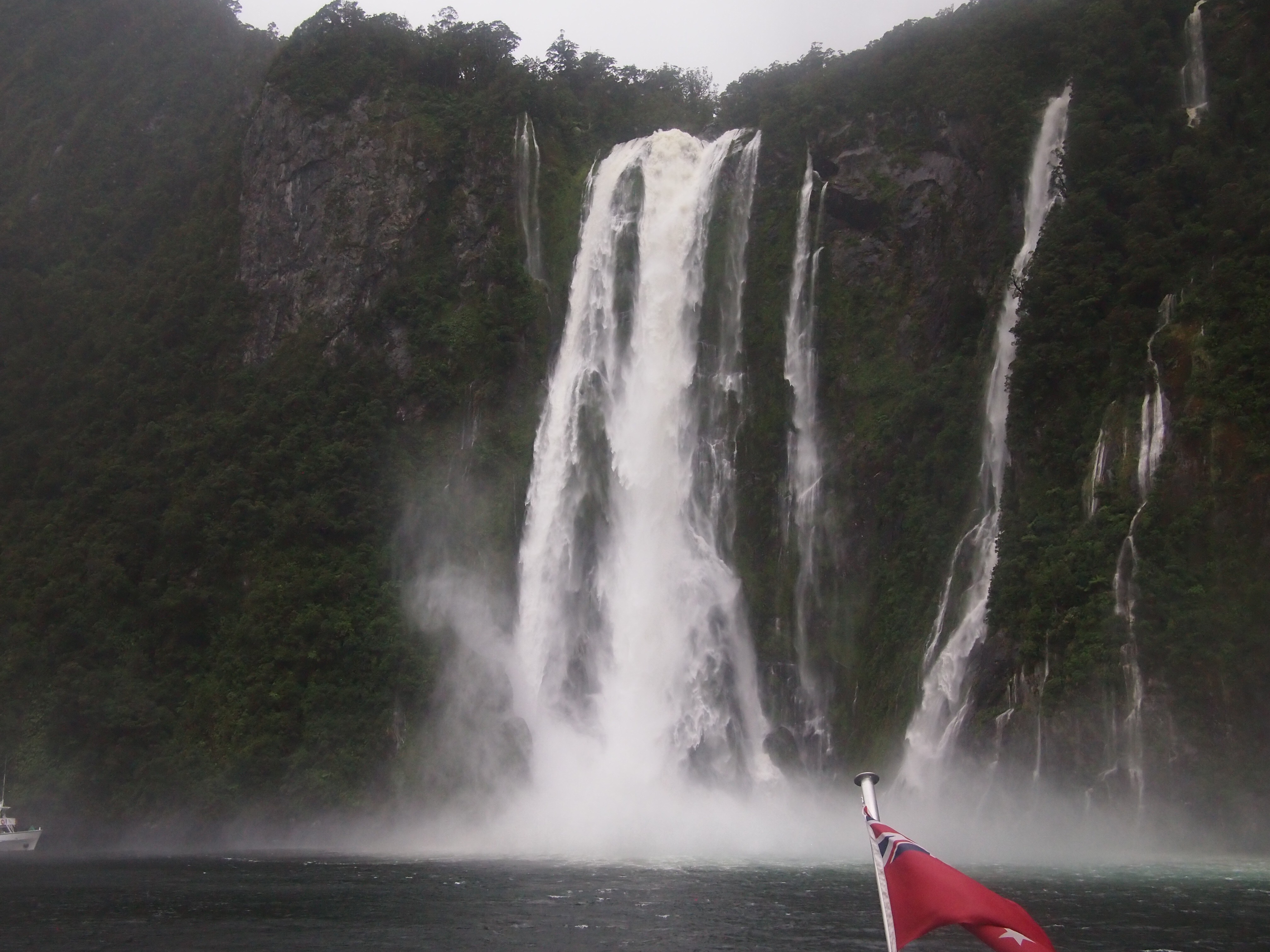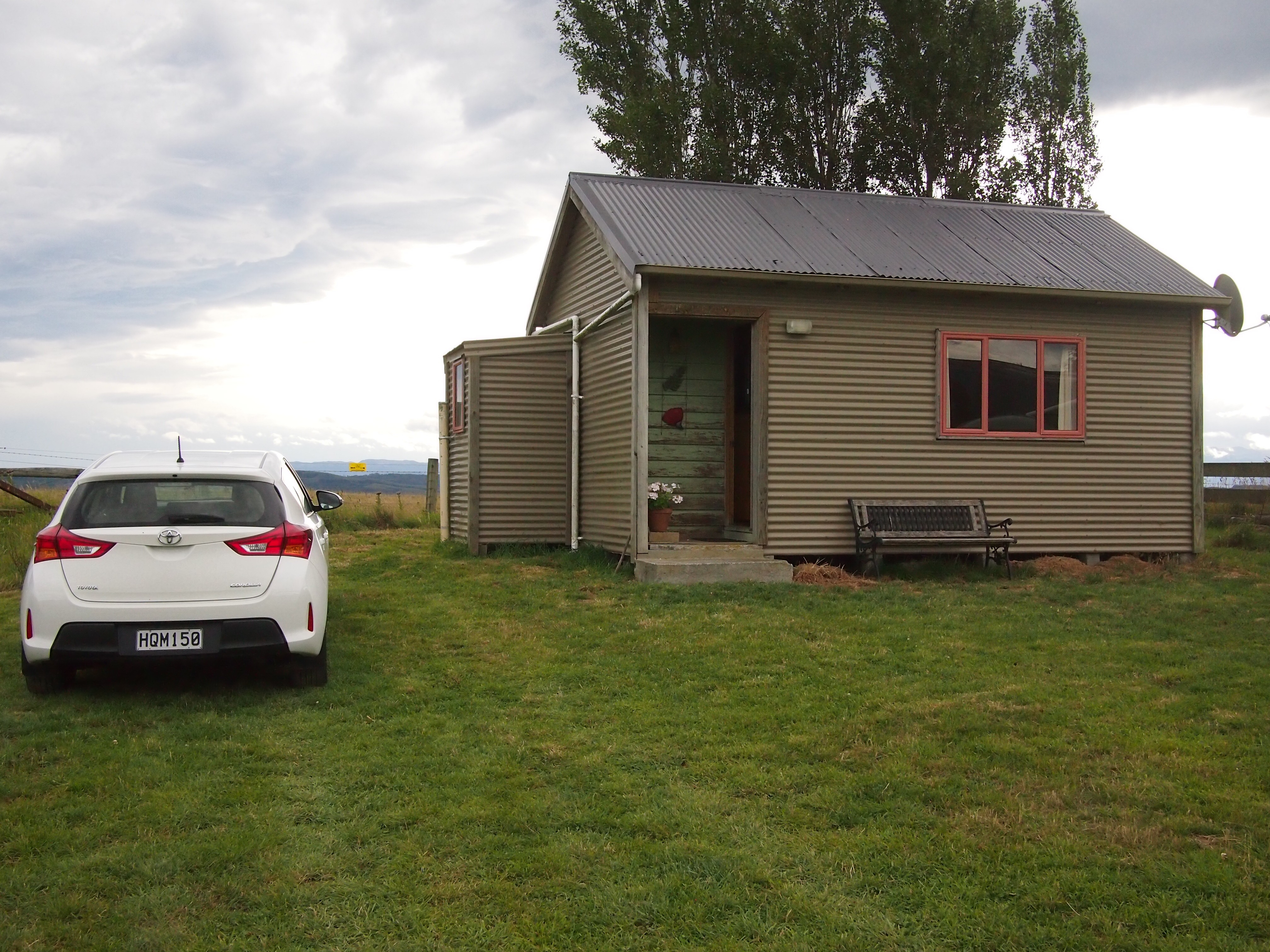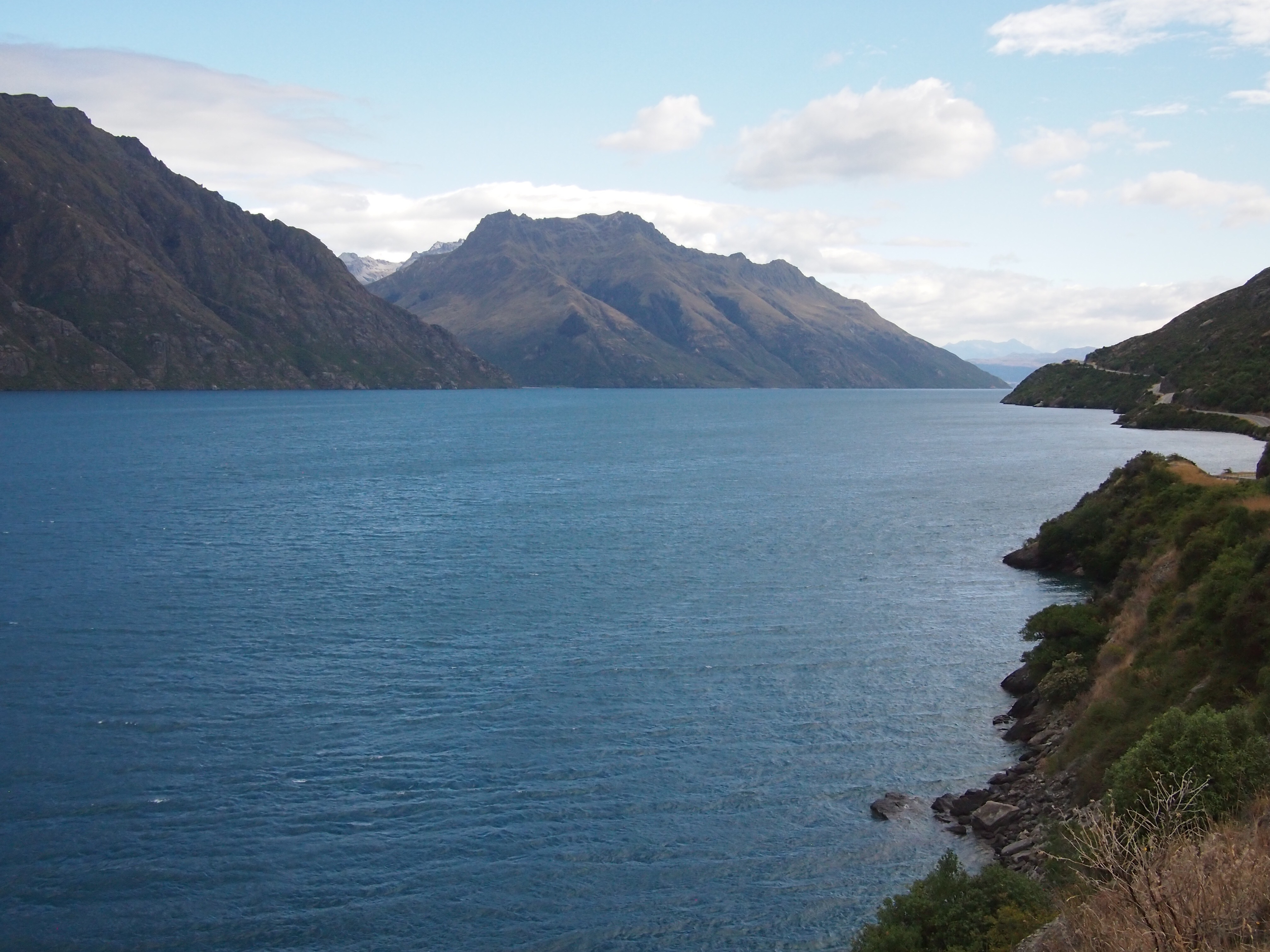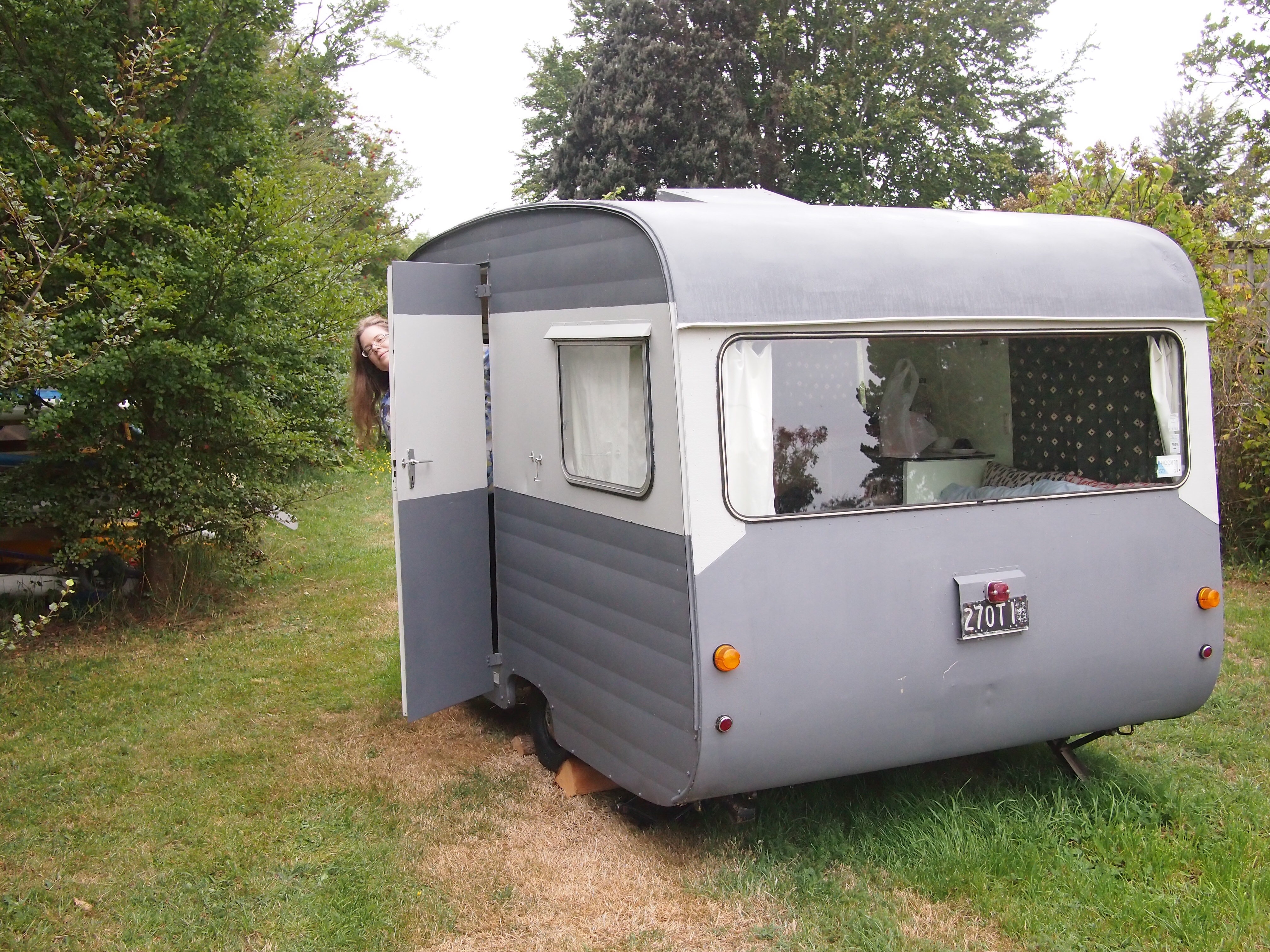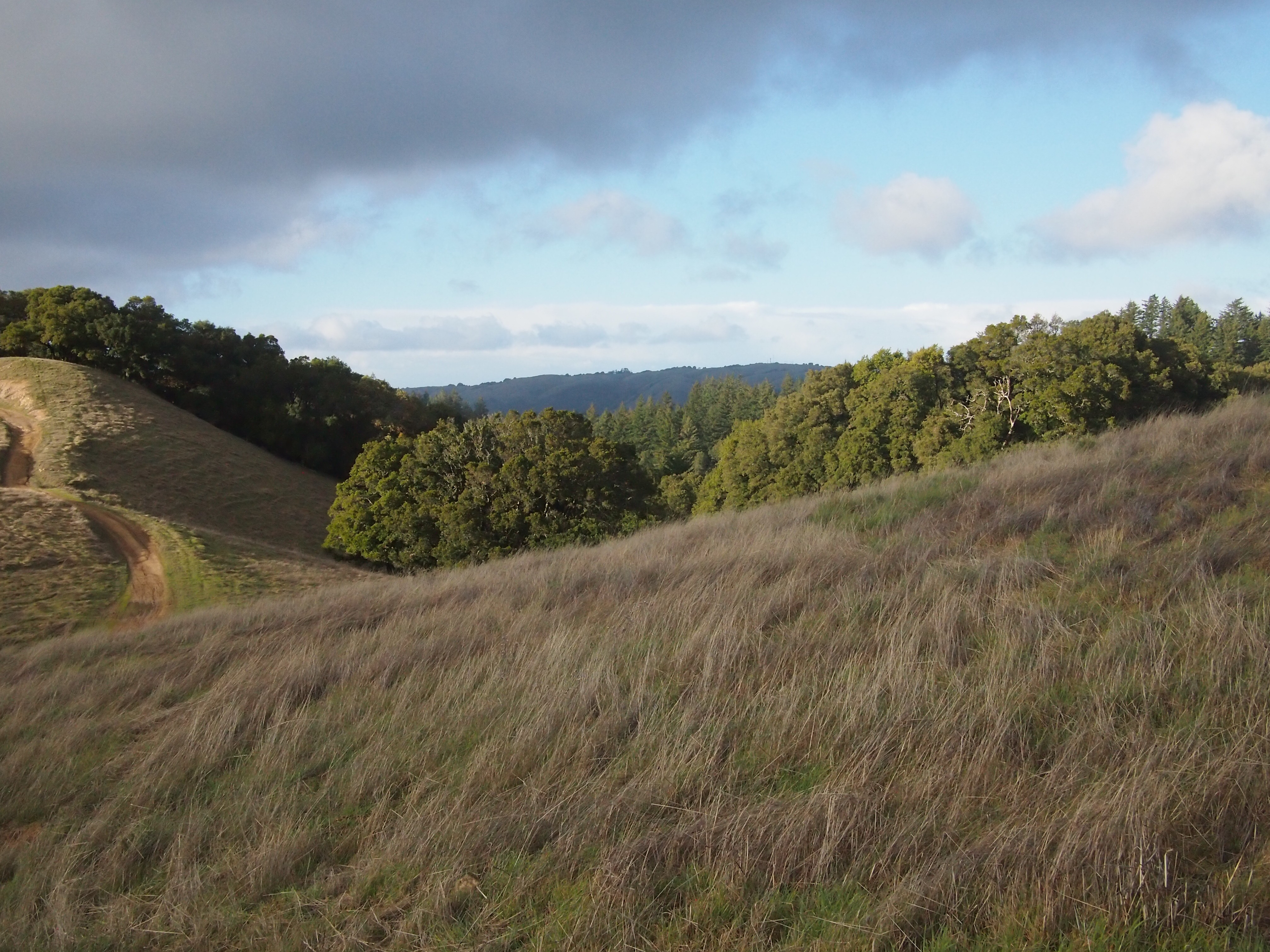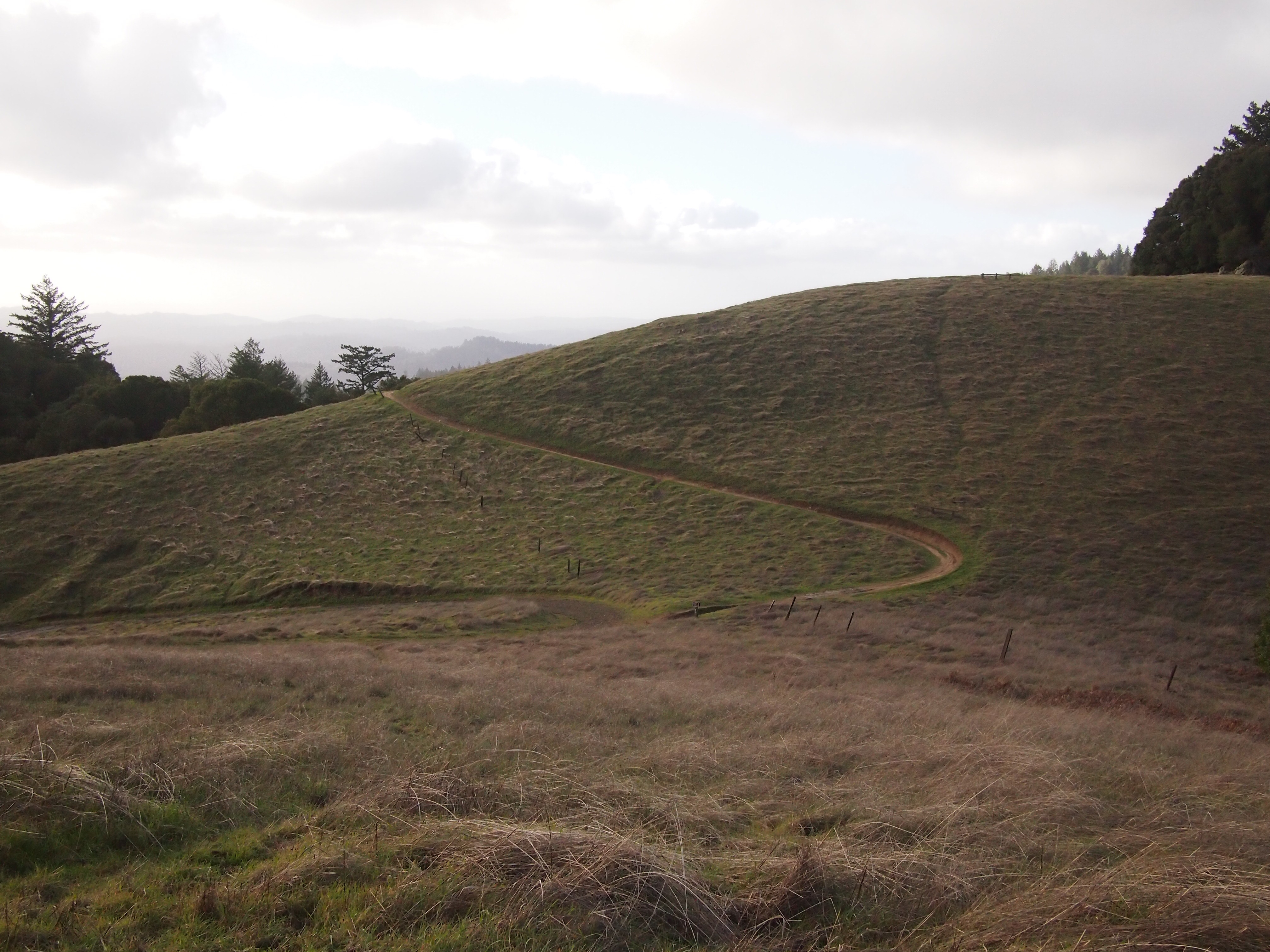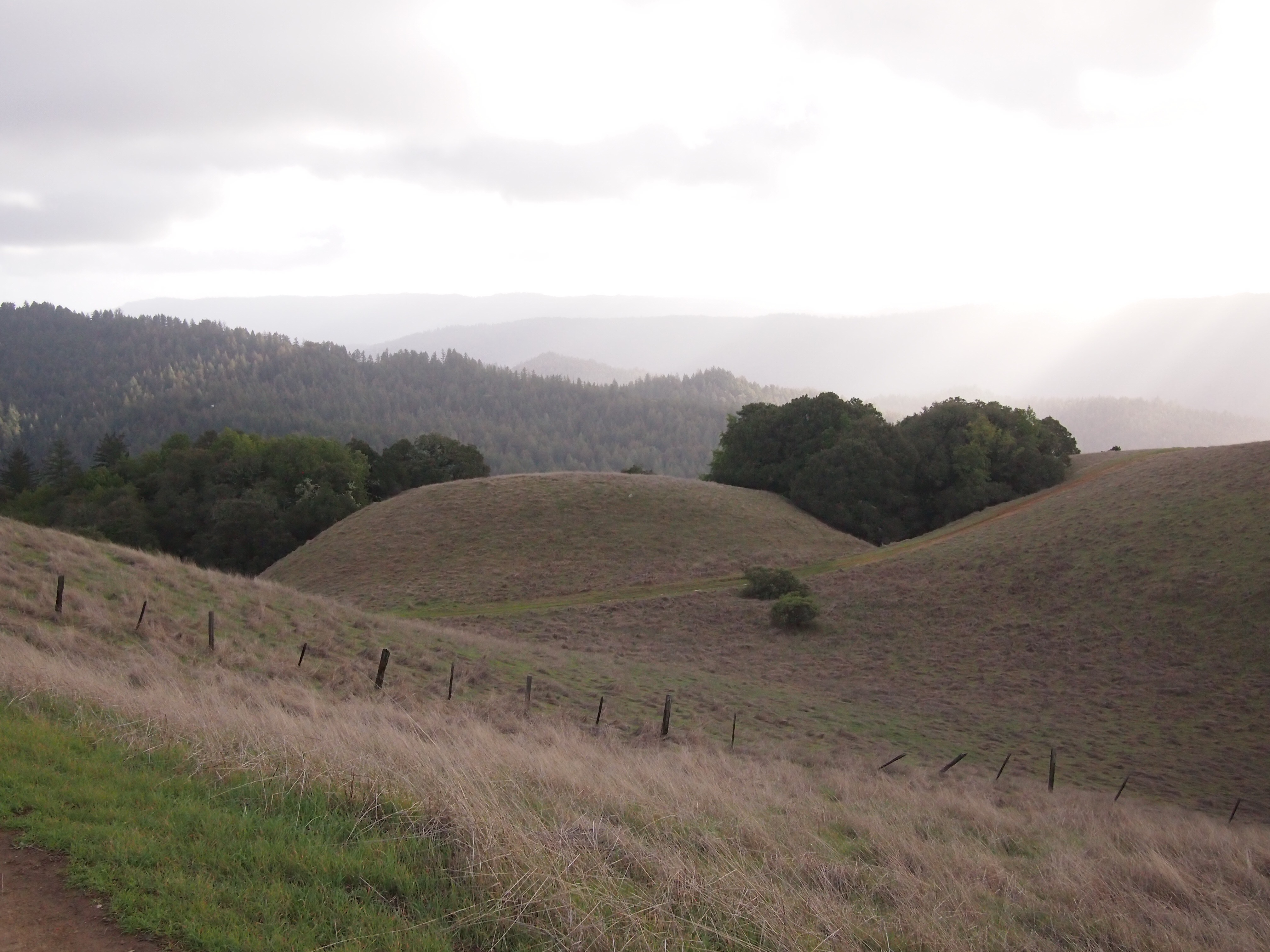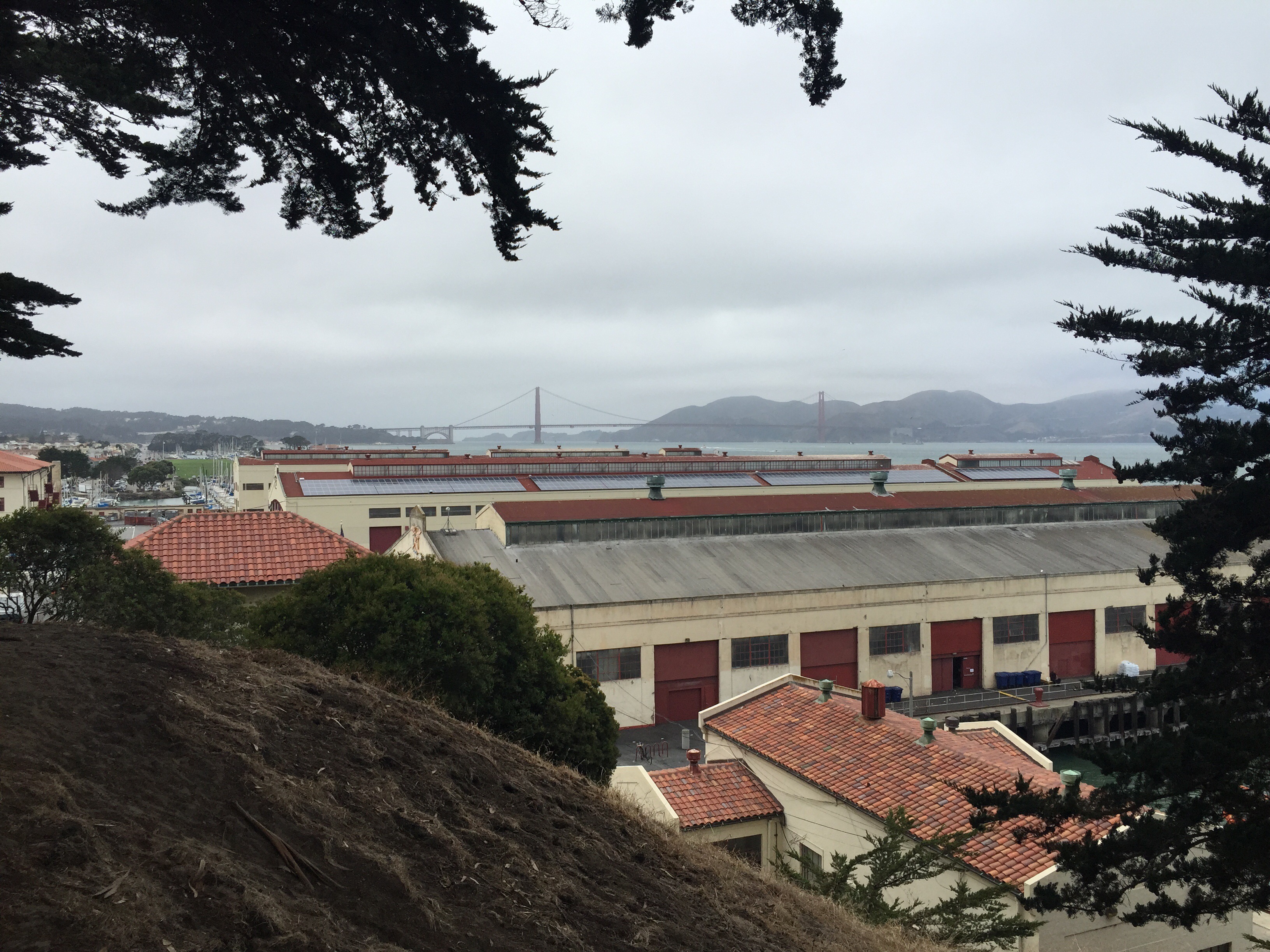I have not actually described the driving much around here. Getting used to driving on the left hand side of the road was easier than I thought it would be, although every morning I wake up anxious about the day’s driving ahead, and am relieved when we get to where we’re going. Most drivers have been very polite, although there have been a few bad ones — who may well be tourists like us, this is the height of the tourist season and there are a lot of tourists.
The semiotics of the road signs are very similar to the US — the main exception is that the “Yield” sign says “Give Way”, and there are no turns at red lights anywhere on the islands. The top speed is 100km/h on highways, and most highways are two-lane, single-carriage way, with passing lanes and/or “slow vehicle bays” every few kilometers on the straight stretches. You stay left except to pass at one of those places, although much of the rest of the road is marked to permit passing, including in places where it would be utterly crazy to do so. Most roads are clearly signed.
There aren’t a lot of advertising billboards, and the few that are are usually road safety signs warning about things like speeding or road fatigue. My favorites so far have been “Don’t count sheep while driving” and “Expect motorcycles. All the time.” The last gives me an image of motorcycle drivers raining from the heavens.
Off to Wellington!
